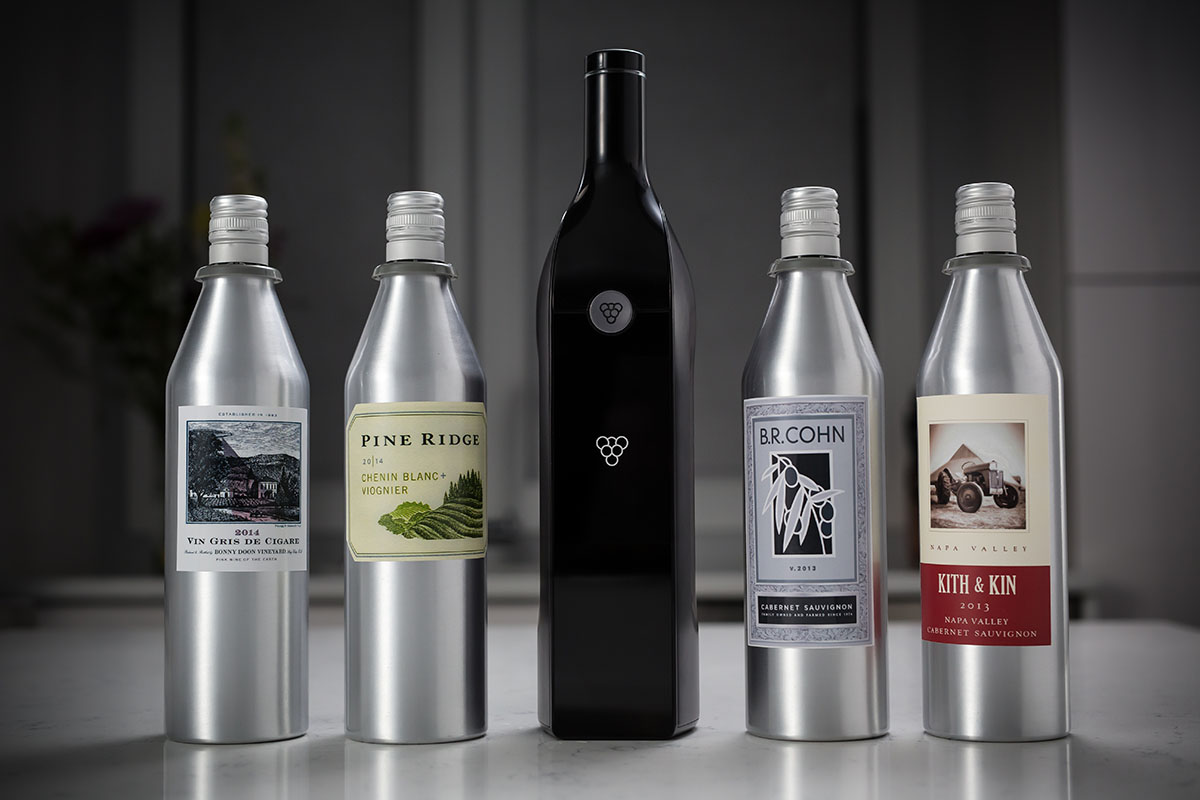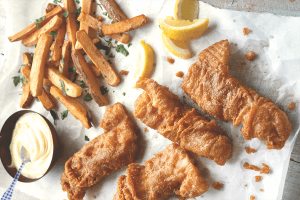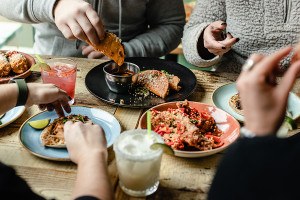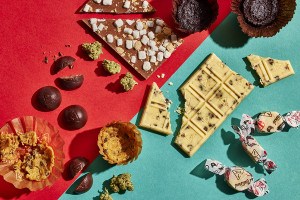Kuvée ‘Smart Wine Bottle’ Brings Home Restaurant Quality Pours by the Glass

The Kuvée “smart wine bottle” system. / Photo provided
After two decades developing startup companies, Vijay Manwani decided to pursue a project of passion. The self-proclaimed wine snob and certified master taster is ready to share his latest venture: Kuvée, the world’s first smart wine bottle. The Wifi-connected machine preserves wine for 30 days, and puts wine knowledge literally at its users’ fingertips.
The Boston-based company just launched a $50,000 IndieGogo campaign campaign, and it announced today that it has already raised $6 million in venture capital to produce and market the product. Pre-orders of Kuvée will ship in October, and the product will officially hit the market in December 2016.
Kuvée is the solution to a few problems Manwani encountered during what he calls his “wine journey.” He had long enjoyed the beverage, but, like many others, he found the vast landscape of what to know about wine somewhat daunting, and he also noticed he wasted sips of perfectly good wines after opening new bottles to try, and not finishing them before they went stale.
“All you need to do to learn about wine is have the ability to drink four or five of bottles side by side with friends, and compare notes. Everything else is fussing around the subject,” Manwani says. “If you could solve spoilage and add some guidance to making drinking smarter, it can take a lot of intimidation out of picture. I call it unlocking choice and unlocking knowledge.”
Kuvée, with offices based on the edge of Chinatown, has 14 employees and consultants on board so far, including a staff sommelier. R. Michael Meagher’s presence is meant to assuage concerns people may have about technology infiltrating such a traditional product; his professional palate confirms the wine is still fresh after a month.
“My entire career in wine has been about getting people the right wine. I don’t mean ‘best wine.’ The best wine I have available might not be the right wine for the table, or the customer,” the master sommelier says. “It’s about learning what you like. We’re helping people build confidence at home.”
The system includes the patented Kuvée bottle, and a growing, curated collection of 750-mL vessels of wine. A bottle of wine is inserted into the device’s shaft, and its spout is equipped with a plastic valve that prevents oxygen from touching the drink before it hits the glass. That’s how it stays fresh. Kuvée is optimized for switching wines, Manwani says: The valve also recaptures any liquid that doesn’t make it into the glass, so pouring a red followed a white keeps the integrity of each wine, even if the user doesn’t rinse the valve between pours.
“You could have many [different wines] open; four to six at a time,” Manwani says, citing the use data the team has collected since October, when they beta-released the Kuvée system to about 100 users in California and the Boston area.
That’s a big perk is for couples who like to drink different things. Each person can open their preference, even on a Monday, without worrying that the bottle will go bad before the weekend. Kuvée can do away with the concept of “weekday” and “weekend” wines, Manwani says.
“In the wine world, weekday drinking is 20-25 percent by value, and weekend is 75 [percent],” he explains. “The 10 percent loss is when people opt to drink other drinks, or abstain, because they don’t want to open a bottle of something. There’s that opportunity for growth.”
Having multiple bottles open also allows for side-by-side tasting. “You could take the journey people normally go through, with one bottle of wine open at a time, in 10 years, and make that happen in six months with four bottles open at a time,” Manwani says.
Plus, each wine is equipped with a microchip the Kuvée bottle can read. On a touchscreen where its label would go, Kuvée displays information such as the winery’s story, food pairing recommendations, the optimal temperature at which to serve the wine, and more. It can connect to the Kuvée store for easy re-ordering, and users can rate each wine. The device can make recommendations.
Users can also allow Kuvée to collect their drinking data, and share it with the winemakers themselves. “You can opt not to do that, but if this product does its job well, you get better recommendations and you will turn it on,” Manwani says. There’s also opportunity for winemakers to reward loyal customers, he says.
Access to consumption data is one perk that encouraged 48 wineries and counting to sign on, including Bonny Doon, Schug, B. R. Cohn, Pine Ridge, Seghesio Family Vineyards, and more. Kuvée also enables winemakers to access a wider direct-to-consumer marketplace than they necessarily would from their own marketing channels, Manwani says.
Kuvée’s wines range from $15-$50 per bottle. Each wine sells for its retail price. So far, Kuvée only offers California wines, but the goal is to eventually partner with at least 100 domestic wineries and 100 international winemakers. The portfolio will always remain small and curated, Manwani says. He doesn’t intend for Kuvée to completely replace its users’ wine cellars.
“Democratizing wine for the masses was the passion project,” Manwani says. “You don’t have to stop drinking the glass bottle. The main thing here is if you can drink well on Monday through Friday, just like how you go to the store and you go to Amazon, you’ll do a little bit of both.”
Kuvée is on sale for the pre-order offer of $179, including four bottles of wine. After the pre-order, the price increases. kuvee.com.


